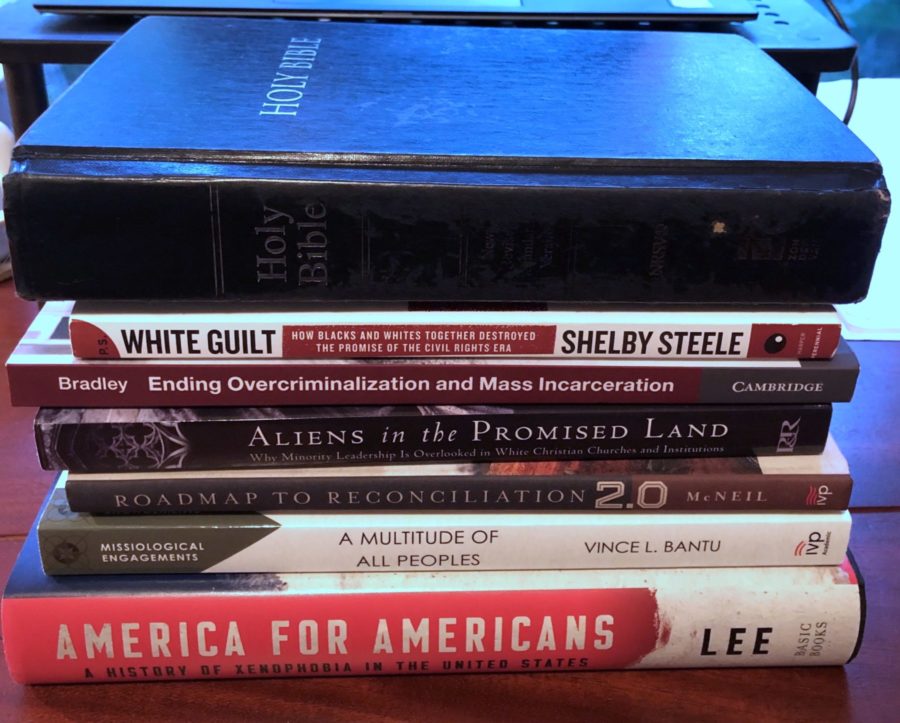GCTS: Race, Class and Ethnicity
Dr. Scott W. Sunquist
On June 23, 1900, Bishop (Saint) Tikhon of Moscow delivered a stinging sermon about racism, poverty, and colonialism to the Orthodox of San Francisco. The sermon had such an impact it was published and changed the approach of the Orthodox (the main Christian presence) in Alaska. It is important to note that the sermon came after the good bishop spent 78 days traversing the region on foot and in kayaks and prayed with starving Aleut and Inuit families in their homes.
In 1924, former missionary and ecumenical leader, J.H. Oldham published an important book entitled Christianity and the Race Problem. Oldham, who was raised in India and worked in Lahore, argued against “scientific” proofs of racial superiority of certain races and the inferiority of other races. It is a remarkable book arguing that the Church must resist “common” assumptions about race and affirm the Scriptural truth of God’s loving creation of all peoples.
Today, nearly a century later, the Church has an opportunity and an obligation to once again point to something higher. We must build communities that are signposts of the Kingdom for a world that seems increasingly divided and deaf to the cries of the poor, oppressed and those unjustly treated. We have a great tradition to connect to, we have helpful new publications to assist us, we have diverse students and faculty to guide us, and (most importantly) we have a beautifully consistent message from Scripture as our ultimate guide.
Gordon-Conwell Theological Seminary’s approach must rely on all of these resources as we live into a Kingdom culture that celebrates God’s rich diversity and faces directly and lovingly corrects those places and people who alienate or mistreat people of other races, classes, or ethnicities.
Brenda Salter McNeil, in her revised edition of Roadmap to Reconciliation (IVP, 2015/2020), reminds us that in our concern for reconciliation we must remember that we live in a world of racism. Therefore, our change in thought and culture must not be too narrow. I have found this to be true as Chinese, Korean, and Hispanic students have spoken up about their treatment at Gordon-Conwell as if to say, “Don’t forget about us.” It is true, the problems of diversity are complex, global, and pervasive. We need a solution big enough to match the complexity of the disease.
I have had many communications from faculty, students, and alumni asking about our response to the present crisis of racism, or more exactly the present opportunity for change. Here are some of the ways we are rebuilding our culture as Gordon-Conwell.
-
- In the last half of 2019, we had ad hoc diversity committee headed up by Dean of Students, Dr. Jana Holiday, who worked on a number of suggestions (including readings and a theological statement). These recommendations were passed on to the President’s Cabinet and the Board of Trustees.
- Issues of diversity, equity, and inclusion are now the responsibility of the Cabinet which represents all of the areas of the seminary. We began by reading and discussing the New York Times best seller, Jemar Tisby’s The Color of Compromise (Zondervan, 2020). We also invited two other black authors, Anthony Bradley and Vincent Bacote, to lead the Cabinet in discussions about chapters in their books.
- The suggestions from the diversity committee were far reaching, and we will continue to work on these during this year. They include adding a question on sensitivity to different races and cultures to the student course evaluations. We are already reviewing course syllabi for diverse perspectives/authors in courses where that is appropriate.
- In the fall of 2019, I mentioned that in our hiring of staff, administration and faculty we should try to look more like the global and urban church than we do now.
- I have spoken to student leaders about setting up small group lunches to talk about diversity issues with faculty, staff, and students together.
- The faculty will also begin some discussions this fall, beginning by telling our own stories.
There are other initiatives that are in play and that we are talking about as we listen to students, alumni, faculty and staff. Again, to quote Salter McNeil, “…our ability to experience transformation is critically connected to our engagement with others who bring unique and diverse perspectives.” (p.74) Gordon-Conwell’s loving and Christ-centered community will develop as we listen to each other, developing empathy, and as (together) we study, lament, and pray over the biblical vision.
We invite you to partner with us in prayer as we live more deeply into God’s great and glorious diversity in love.
SWS
 Scott W. Sunquist, the new President of Gordon-Conwell Theological Seminary, writes a weekly blog, “Attentiveness” which is posted each Monday morning on the Gordon-Conwell web site. He welcomes comments, responses and good ideas.
Scott W. Sunquist, the new President of Gordon-Conwell Theological Seminary, writes a weekly blog, “Attentiveness” which is posted each Monday morning on the Gordon-Conwell web site. He welcomes comments, responses and good ideas.
